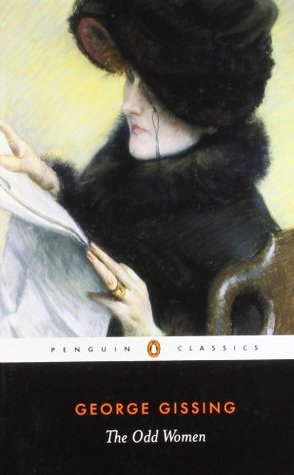What do you think?
Rate this book


388 pages, Paperback
First published January 1, 1893
I want to do away with that common confusion of the words womanly and womanish, and I see very clearly that this can only be effected by an armed movement, an invasion by women of the spheres which men have always forbidden us to enter.
Men have kept women at a barbarous stage of development, and then complain that they are barbarous. In the same way society does its best to create a criminal class, and then rages against the criminals.
Never had it occurred to Widdowson that a wife remains an individual, with rights and obligations independent of her wifely condition.

"Our civilization, in this point, has always been absurdly defective. Men have kept women at a barbarous stage of development, and then complain that they are barbarous. In the same way, society does its best to create a criminal class, and then rages against the criminals."To richly illustrate his main thesis, Gissing populates his novel with not only a number of characters who side with Rhoda but also a handful of peripheral, interpersonal relationships which serve to promote or (less often) disprove her theory.
"I am seriously convinced that before the female sex can be raised from its low level there will have to be a wide-spread revolt against sexual instinct. Christianity couldn't spread over the world without help of the ascetic ideal, and this great movement for woman's emancipation must also have its ascetics."Rhoda is resolute:
Rhoda... probably desired a union which would permit her to remain an intellectual being; the kitchen, the cradle, and the work-basket had no power over her imagination. As likely as not, however, she was perfectly content with single life--even regarded it as essential to her purposes.But, of course, she is also not only a woman but a human being; one who will soon recognize and parry with that pesky human folly: love:
"Please don't make me your confidante, Mr. Barfoot," Rhoda replied with well-assumed pleasantry. "I have no taste for that kind of thing."Mr. Barfoot - Everard - is cousin to Rhoda's colleague Mary. A rather fascinating male specimen, he becomes the catalyst for the larger portion of the novel's drama.
"But I can't help doing so. It is you that I am in love with."
"I am very sorry to hear it. Happily, the sentiment will not long trouble you."

So many odd women--no making a pair with them. The pessimists call them useless, lost, futile lives. I, naturally--being one of them myself--take another view. I look upon them as a great reserve. When one woman vanishes in matrimony, the reserve offers a substitute for the world's work.